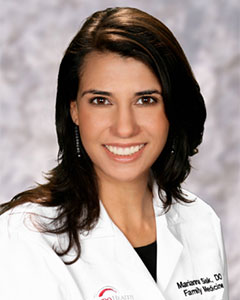Many of us are more focused on our health now, perhaps more than we have been in a long time. We are staying at home and flattening the curve. We are wearing masks in public settings and observing social distancing guidelines.
Health and medical safety extend beyond our risks for COVID-19, however. There is so much more to address beyond the coronavirus, and delaying care for any issue can be detrimental to our health. Whether it’s going to the emergency room when you have chest pain or taking care of annual screenings, avoiding delays in your healthcare can improve your recovery.
What Waiting Does
In the emergency room, we’ve seen many people delay seeking care so much during this time that they often get very sick, making for dangerous and unnecessary situations.
Instead of an appendix just being appendicitis, it’s now a ruptured appendix. People coming in with underlying heart problems like congestive heart failure, chronic obstructive pulmonary disease (COPD) or emphysema have progressed to severe levels. Or those who have infections now don’t simply have infections that are easy to treat with antibiotics. Instead, they are going into full-on sepsis, which is a severe form of an infection that gets in the bloodstream.
At our primary care offices, patients are telling us they’re skipping cancer screenings. But it’s important to avoid doing this. Waiting two or three months on that mammogram could mean a major change to how undiagnosed breast cancer might develop. And some cancers can be more aggressive than others. Just three months can make a significant difference.
It's also important to address all your chronic conditions, especially during times like this. Don't put off taking care of your diabetes or your high blood pressure. These are high-risk factors for heart disease, the number one cause of death in the United States.
Patient Concerns
We understand the concern from the standpoint of patients. What a lot of people are thinking is, “Does the benefit of me coming into the hospital outweigh the risk of me getting a severe infection?” We have the same concerns as you do. We don't want you to get sick. We don't want you to spread COVID-19 in our community. We have processes in place to help minimize that risk of transmission to you.
Another concern patients may have is, “What if I go to the emergency room and I sit in the waiting room for a long time, and I'm waiting around a bunch of other patients?” Right now, we are doing our absolute best to minimize any time in the waiting room. We're getting people back right away to a room that's been freshly decontaminated. If you have to wait, you already will be masked, and we are making sure there is enough space between everyone.
How You Are Protected
What people may not understand is we have precautions in place in our ERs to help protect patients as well as us healthcare providers. We’re adequately supplied with personal protective equipment. When you come to see us, we provide you with the mask. Not only are we at lower risk for giving anything to you, you're at lower risk for transmitting anything to us.
Secondly, the number of patients who actually have COVID-19 and are coming to our ERs is very small. Those who are even suspected of having it are placed in negative-airflow rooms, where the air is vented to an outside environment. That way you don't have to worry about being in a room next to somebody who might have the illness and being cross contaminated with the air surrounding them.
Whether in the hospital or the practice offices, we are sanitizing more. Every room is thoroughly cleaned between patients with alcohol and bleach wipes. In the ER, we also can use special ultraviolet lights to decontaminate a treatment room and further minimize possible risks.
Maintaining Your Health with Virtual Visits
Overall, it’s important to focus on your health at all times. Think about your health beyond COVID-19. Don’t put off preventive cancer screens, mammograms, colonoscopies or pap smears.
Remember that much of the care we offer can be addressed through virtual visits.Touching base is important. From your home, you can utilize virtual visits to talk with your doctor or specialist about new issues that may be bothering you or what you can do to continue managing conditions like high blood pressure, diabetes and high cholesterol.
Choose to Stay in Touch
Sign up to receive the latest health news and trends, wellness & prevention tips, and much more from Orlando Health.
Sign Up










